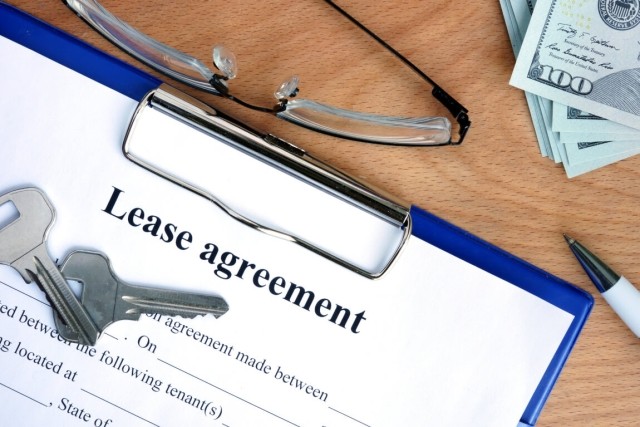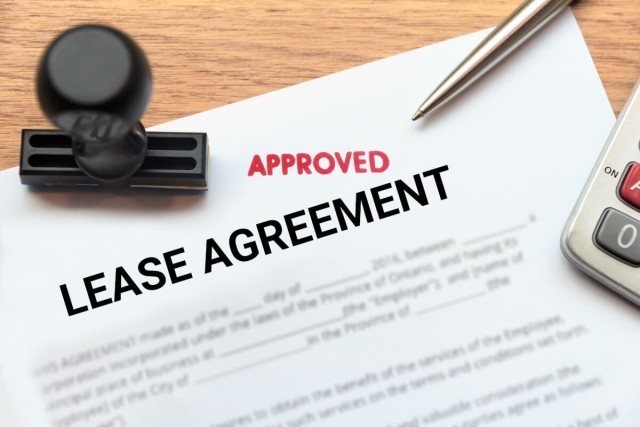There are two implied rights, or covenants, that you can expect as a renter: the right to habitability and the right to quiet enjoyment. Both of these implied warranties should be included in your lease, but if they’re not, you might be wondering what they guarantee. Your right to habitability means that your landlord guarantees a safe rental with essential services in good working order. But what about the covenant of quiet enjoyment?
Your right to quiet enjoyment means you’ll enjoy undisturbed use and enjoyment of your rental. The covenant of quiet enjoyment guarantees a reasonable expectation of privacy and prevents your landlord from showing up unannounced (unless in emergency situations). It’s ideal for your covenant of quiet enjoyment to be included in your lease. Specifically, how much notice your landlord will give you before they visit the property. Most states set this at 24 hours or more but be sure to double check.
Your right to quiet enjoyment may not be written out in a lease agreement. Some states require specific language be included in a lease, others do not, so check your state laws. But because this – and your right to habitability – are implied warranties, they don’t need to be written down to hold up in court. So, don’t fret if you don’t see specific language in your lease, but it may worth asking your landlord for clarification.
What is considered reasonable enjoyment of a rental property?
The implied warranty of reasonable, quiet enjoyment guarantees a renter’s right to enjoy all parts of their rental without the threat of being disturbed (without proper warning) by the landlord, and also by on-going outside disturbances.
Examples of disturbances to quiet enjoyment
- Landlord visits without proper notice, or consistent visits that disrupt the tenant’s daily life
- Ongoing renovations or construction that exceed the expected completion date
- A barking dog, whether inside or outside, that disturbs the tenant’s expectation of peace and quiet. Pet noise should be expected, so infrequent barking won’t hold up, but ongoing pet disturbances could be grounds for a break of quiet enjoyment.
- Consistently noisy neighbors
- Pests or other preventable factors that disturb the tenants’ peace and quiet
Quiet, reasonable enjoyment can also apply to more than just unannounced landlord visits and loud, consistent noises. Unaddressed safety concerns that make a tenant feel uneasy about their rental are covered under the covenant of quiet enjoyment. Unstable stairs, shoddy door locks, or weak and rotting window frames that go unaddressed can negatively affect a tenant’s safety.
What is considered excessive noise?
When it comes to noise in a rental, especially if you rent in a multi-unit property, the definition for what is excessive and what is disturbing can vary. Everyone has a different tolerance when it comes to noise. The dog barking in one apartment may become background noise to one renter, but it can be like nails on a chalkboard to others. Luckily there are few key defining factors to define excessive noise should you need to report it.
To qualify as excessive noise, the disturbance must be on-going. A sudden bang from your clumsy upstairs neighbor won’t count, but a very vocal Fido who just wants to be heard day in and day out certainly does. Next, the noise has to be out of the ordinary. Kids coming home from school at the same time every day and bounding up the stairs may break your focus, but it’s not a noise that you wouldn’t expect from tenants with kids. A tenant with children can’t be evicted simply because they have kids since families are protected under the Fair Housing Act. But if the children of a tenant are the cause of consistent and on-going noise disturbances at odd or designated quiet hours, there may be a case for an excessive noise complaint.
As a renter, you should also be conscious as to what noises you create and how it affects your fellow tenants. If you live on the second story of an apartment building and above, you’re probably conscious of the unit below you, but noise travels in all directions. Don’t worry; simply walking around your apartment isn’t grounds for a noise disturbance, but consider factors such as your dog and kids.
Could I get evicted for making too much noise?
If you’re concerned that you might be the noisy tenant, or if you’ve received complaints from fellow tenants or your landlords, it’s time to check your lease. Your landlord should have defined quiet hours laid out in the lease; this helps them better protect yours and other tenants’ right to quiet enjoyment.
They should also outline what constitutes a noise violation, especially if you live in a multi-unit building. If you have guests over (not normally a disturbance) and things get rowdy during quiet hours, you could be in the wrong.
Your landlord’s first step in addressing a noise complaint should simply be to investigate. They may ask you when and where you heard the noise (if you’re the one filing the complaint) and if it has happened before. Their next step should be to address the tenant in question. Sometimes a simple conversation about the infraction can be enough to prevent further issues. If the noise violation continues, the landlord may offer a “cure or quit” solution, meaning that if the tenant in question doesn’t stop the noise, they may be evicted.
It is possible to be evicted for making too much noise. Since all tenants are entitled to their quiet enjoyment, someone who impedes on that right can be lawfully evicted.
How to Soundproof Your Apartment
If you’re concerned about disturbing your fellow neighbors, here are some steps you can take.
- Add carpet in high-traffic areas or children’s play areas to absorb sound that hardwood floors would otherwise amplify.
- Add area rugs in larger rooms to help quell echoes and footsteps.
- Consider hanging canvas-backed paintings instead of framed pictures to reduce the amount of noise that travels between walls.
- Buy a noisy dog engaging food mats or toys that will keep their attention.
- Hang fabric window treatments to absorb sound from both indoor and outdoor sources, and to help block a dog’s view of passersby.
Everyone’s entitled to the same two renter rights: the right to habitability and the right to quiet enjoyment. The covenant of quiet enjoyment means you get to enjoy your rental and all its services without your landlord showing up unannounced, and without consistent noise disturbances that could be categorized as out of the ordinary. If you’re concerned about the noise you create as a tenant, there are some quick fixes you can make to ensure everyone else’s enjoyment as well. Happy renting!






